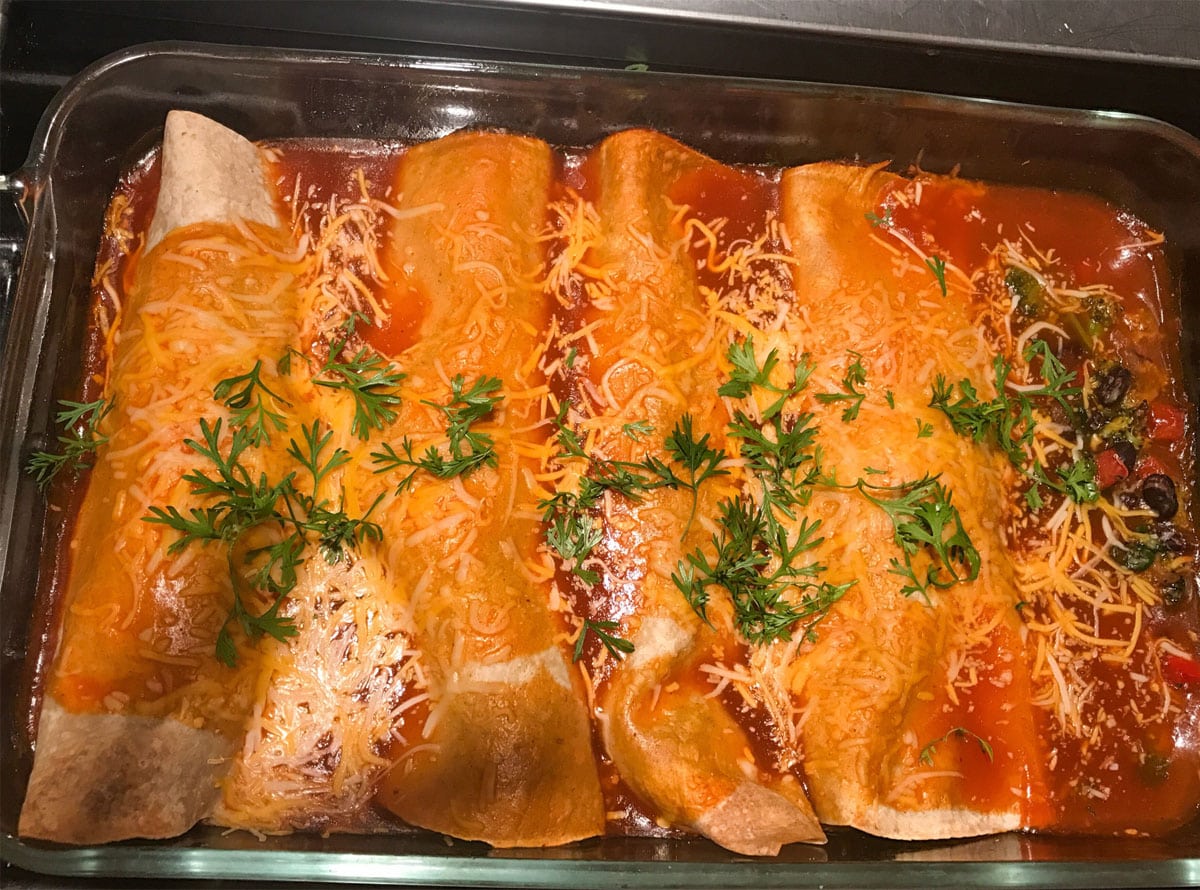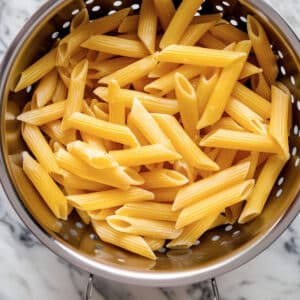When it comes to Mexican cuisine, several types of sauces can be used to add flavor and spice to dishes. Two of the most popular sauces are taco sauce vs enchilada sauce. While you can use these sauces in various dishes, they each have unique flavor profiles that set them apart.
So which one is better? In this blog post, we'll take a closer look at both sauces and decide once and for all which one reigns supreme. Spoiler alert: enchilada sauce comes out on top! Keep reading to find out why.

So, what's the difference between taco sauce vs enchilada sauce?
The main difference between enchilada sauce and taco sauce is the ingredients used in each. Chili powder is a major enchilada sauce component, giving it a deep, rich flavor. On the other hand, Taco sauce uses paprika, which gives it a slightly smoky flavor. Additionally, enchilada sauce gets its heat from fresh or canned chilies, while taco sauce uses cayenne pepper, giving it a bit of a kick.
What is enchilada sauce?
There are numerous Mexican sauces, but enchilada sauce is distinguished from others by its chili powder flavor. The recipe calls for a few basic ingredients. Enchilada sauce contains tomato paste or tomato sauce as its base, as well as garlic, onion, oil, flour, and chili powder, making it spicy.
This sauce is a smooth, chili-based sauce that coats tortillas; it can be either spicy or mild, depending on the type of chili used. You can make enchilada sauces with either fresh or canned ingredients, usually simmered on the stovetop until thickened.
As the name implies, enchilada sauce is the heart of the Mexican dish enchilada, which is made by wrapping a tortilla around a filling and smothering it in the sauce.
In Spanish, enchilada means "filled with chili," which perfectly describes the sauce.
Read:
What is taco sauce?
Taco sauce is a condiment made from tomato paste, water, vinegar, chili peppers, and spices. It is used as a topping or filling for tacos. Taco sauce is usually milder than enchilada sauce and has a thinner consistency.
Taco sauce adds flavor and spice to tacos, another Mexican dish popular in the US. The most common filling for tacos is ground beef, lettuce, tomatoes, and cheese wrapped in a soft tortilla. The taco sauce is used as a condiment and adds a zesty, vinegary flavor to the taco. Taco sauce is usually much thinner than enchilada sauce and not as spicy.
In other words, taco sauce is the bright element that ties everything together in a taco shell bringing all the flavors to life. No matter what your taco filling is, whether it's beef, chicken, or fish, it's incomplete without taco sauce.
What is Taco sauce made of?
A typical taco sauce consists of tomato sauce, water, vinegar, spices, and sugar. The exact ingredients and proportions vary depending on the brand, but most sauces contain some chili pepper, cumin, garlic, and onion powder.
Taco sauce is a more generic term for any sauce used in tacos. Usually, taco sauce is simply salsa or pico de gallo with some added spices. On the other hand, Enchilada sauce is a more elaborate affair, generally involving roasted peppers, tomatoes, and various spices.
Read:
What is Enchilada sauce made of?
The enchilada sauce has a base of vegetable broth, which you add after making a roux of oil and flour. Each of these roux ingredients is needed in three tablespoons to ensure the right sauce consistency. You'll also need chili powder (I like using smoked chili powder for extra flavor), cumin, garlic powder, oregano, salt, and cinnamon. The tomato paste, vinegar (I prefer apple cider vinegar), and black pepper provide acidity and brightness.

How is Taco sauce used?
There are many ways to use taco sauce, including as a condiment for tacos, burritos, or enchiladas. Also, it makes a good dip for chips and vegetables.
How is Enchilada sauce used?
Enchilada sauce is used as a sauce for enchiladas, of course! You can also use it as a dip or general-purpose Mexican cooking sauce.
What is the heat level of enchilada sauce?
Regarding heat levels, enchilada sauce varies by recipe, depending on the type of dish. It can be mild, medium, or spicy. The kind of chili pepper used will also affect the heat level. For instance, a sauce made with jalapeño peppers will be hotter than one made with Anaheim peppers. Therefore, it is best to taste the sauce before adding it to your dish to gauge the heat level.
What is the heat level of Taco sauce?
A typical taco sauce is mild to medium heat, though some brands also make spicier versions. However, like enchilada sauce, the heat level will vary depending on the recipe and the type of chili pepper used. Try using a hotter pepper, such as habanero or serrano, for a spicier sauce.
Taco sauce vs enchilada sauce:
The most significant difference between taco sauce and enchilada sauce is the thickness. Enchilada sauce is thicker due to a roux, while taco sauce is thinner and more watery. Enchilada sauce has a brighter flavor due to adding vinegar, while taco sauce is more subtly flavored. Finally, enchilada sauce typically contains chili pepper, while taco sauce does not.
| Taco Sauce Ingredients | Enchilada Sauce Ingredients |
|---|---|
| tomato sauce (canned) | tomato paste |
| white vinegar | apple cider vinegar or white vinegar |
| ground cumin | ground cumin |
| onion powder | dried oregano |
| garlic powder | garlic powder |
| garlic salt | salt, to taste |
| ground chili powder | ground chili powder |
| paprika | Pinch of cinnamon (optional but recommended) |
| white sugar | all-purpose flour |
| cayenne pepper | olive oil |
| water | vegetable broth |
| ground black pepper, to taste | |
1 Ingredient:
To make taco sauce, you need tomatoes, onions, peppers, and spices. Enchilada sauce also contains these ingredients but includes a roux (flour and oil) to thicken it.
2 Consistency:
Taco sauce is thinner than enchilada sauce. What makes taco sauce thinner than enchilada sauce? Because it doesn't have the roux, which acts as a thickener.
3 Flavor:
Compared to enchilada sauce, taco sauce has a more subtle flavor due to its watery consistency, while enchilada sauce contains a roux. Enchilada sauce also has vinegar, which gives it a brighter flavor.
When it comes to flavor, enchilada sauce is typically more complex than taco sauce. Enchilada sauce often has a deeper, richer flavor due to the addition of spices like cumin and chili powder. Taco sauce is usually just tomato-based with a little bit of heat.
4 Texture:
What distinguishes these two sauces most is the texture. There is more thickness to enchilada sauce due to the roux, whereas taco sauce is thinner and more watery.
5 Level of heat / Spiciness:
The taste of taco sauce is generally milder than that of enchilada sauce. Due to its less spicy nature, taco sauce contains fewer chilies and spices than enchilada sauce. On the other hand, Enchilada sauce often has a more robust and spicy flavor due to the inclusion of more chili peppers and other spices. It's the chili pepper that gives enchilada sauce its characteristic kick.
Ultimately, the difference in flavor between taco sauce and enchilada sauce comes down to the ingredients used and the amount used. Enchilada sauce is the way to go if you're looking for a sauce that packs a little more heat.
Note: Taco sauce is usually mild in spiciness, but some brands kick up the heat a notch or two. Enchilada sauce usually is spicier due to adding chili peppers, but this will also vary from brand to brand. Depending on the sauce, some enchiladas are mild, while others will have your eyes watering and nose running.
6 Uses:
The taco sauce is often served with enchiladas, tacos, and burritos. As a dip, it is also suitable for chips and vegetables. Enchilada sauce is used as a sauce for enchiladas, of course! It can also be used as a sauce for burritos and tamales or even poured over nachos. It is possible to use enchilada sauce as a base for other Mexican dishes, such as chilaquiles.
7 Shelf life:
You may need to check the expiration date if you are sifting through your fridge and searching for store-bought taco sauce hiding in the back for a while. Commercial taco sauce can last up to 18 months if unopened. It is best to consume these items within one to two months after opening, while homemade taco sauce can only last around two weeks.
A can of enchilada sauce lasts up to 2 years unopened. Once opened, it is best to consume within 7 days if stored in the fridge and keep in the freezer for around 6 months. Homemade enchilada sauce lasts 7 to 10 days when stored in an airtight container and refrigerator.
8 Nutritional value:
Taco sauce is not typically a healthy food due to its high sodium content. However, it is low in calories and fat. Enchilada sauce is also high in sodium and low in calories and fat, but because it contains a roux, it has more saturated fat than taco sauce.
9 Prices:
Taco sauce and enchilada sauce are both relatively inexpensive. You can find them at most grocery stores for around $2-3 per jar.
Comparison chart (Taco sauce vs Enchilada sauce)
| Comparison | Taco sauce | Enchilada sauce |
|---|---|---|
| Ingredients | Tomato paste (other ingredients are similar) | Canned tomato sauce (ingredients are almost the same) |
| Consistency | Taco sauce is thinner | Enchilada sauce is thicker because of roux |
| Flavor | more subtle flavor | deeper, richer flavor |
| Texture | thinner | thicker due to roux |
| Level of heat | milder (depends on brands) | more robust & spicy flavor (varies depends on brands). |
| Uses | Condiment, dip or sauce | sauce for enchilada, dip and sauce |
| Nutritional value | high sodium | high sodium |
| Base | vegetable broth | water |
What is the best way to buy enchilada sauce?
As you choose enchilada sauce, you might want to consider how much you need and what type of enchilada sauce best fits your dish. You can find enchilada sauce in small, medium, and large cans. The size of the can will affect how much you pay for the sauce. Enchilada sauce is also available in mild, medium, and hot varieties. Consider what heat level you want in your dish and select the enchilada sauce accordingly. You can also find gluten-free and dairy-free enchilada sauces if you need a particular diet option.
The most crucial factor is its flavor, which depends on the chilies combined with other spices. When in doubt, go for a sauce made with ancho chilies, as they provide a more complex flavor than other varieties. The taste of different brands will also vary, so you choose what works best for your recipe.
No matter what brand or type you choose, remember to read the "best before" and "use-by" dates to ensure you're getting a quality product. Moreover, ensure that jar lids are intact and that there are no signs of leaks.
What is the best way to buy taco sauce?
There are a few things to consider when purchasing taco sauce. First, decide if you want a traditional salsa or something with more spice. Many grocery stores carry both varieties. Try a specialty food store if you can't find what you're looking for.
Once you've chosen your taco sauce, think about how you'll use it. Will you be using it as a condiment for tacos or burritos? As a dip for chips? As a sauce for enchiladas? There are many different ways to enjoy taco sauce, so make sure you buy one that will suit your needs.
Finally, check the best-by dates on the labels of different brands before you buy. You'll want to choose a fresh taco sauce that tastes its best.
Enchilada sauce: how to store it
It is best to keep unopened enchilada sauce cans and jars in the pantry, where they will be dry and cool, away from direct sunlight.
Proper storage is key to keeping enchilada sauce fresh. Like taco sauce, the best way to store enchilada sauce is in the fridge. After opening, refrigerate the sauce in an airtight container. Doing this will prevent it from going bad and keep it fresh. Be sure to seal the container tightly so that it doesn't leak. You can also freeze enchilada sauce, which will help to extend its shelf life, either homemade or store-bought.
Taco sauce: How to store it
If you're like most people, you probably have a few go-to recipes that you love to make. And chances are, one of those recipes calls for taco sauce. But what do you do with the rest of the bottle once you've used what you need?
The best way to store taco sauce is in the fridge. Just seal the bottle or container tightly so it doesn't leak. That way, it will be fresh and ready to use the next time you need it.
- Pantry: Keep unopened taco sauce bottles and cans in your pantry, away from direct sunlight, where they will remain dry and cool.
- Refrigerator: After opening, refrigerate the taco sauce in an airtight container.
- Freezer: You can freeze taco sauce for up to six months in an airtight container.
How long does enchilada sauce last?
Enchilada sauce is shelf-stable and usually keeps for up to two years. However, it's best to consume within six months to a year for optimal flavor. Once opened, enchilada sauce should be refrigerated and used within a week. To prolong its shelf life, you can freeze enchilada sauce in an airtight container for up to three months.
Aside from freshness, the quality of your ingredients will also affect how long the sauce lasts. For example, fresh tomatoes in your enchilada sauce will only last a few days since tomatoes are highly perishable. Homemade enchilada sauce will last for about a week in the fridge if stored in an airtight container.
How long does taco sauce last?
Generally, store-bought taco sauce will last about 3-4 months in the pantry if it remains unopened and the packaging is intact. However, after opening the bottle, it is best to keep taco sauce in the fridge, which will last for another 2-3 weeks.
The answer has to do with the acidity level of the sauce. There are three main ingredients in taco sauce: vinegar, tomatoes, and spices. The vinegar and tomatoes' acidity helps preserve the sauce and keeps it from going bad.
How to tell if enchilada sauce goes bad
Similar to other sauces, enchilada sauce can show signs of deterioration. It has probably gone bad if the sauce has changed color or texture or developed an off odor; avoid using it. While it may be safe to scrape off the moldy part of the sauce and use the rest, it is best to err on the side of caution and discard the sauce if there are any signs of spoilage. Even refrigerated sauces can develop mold growth as a result of spoilage.
How to tell if taco sauce has gone bad?
Taco sauce will go bad eventually, just like any other food. When taco sauce is bad, the signs are pretty obvious: it will look discolored or off and smell bad. If you see either of these things, throwing the sauce out is best. There are times, however, when taco sauce can go bad without anyone noticing. If you're unsure whether the sauce is still good, it's best to err on caution and throw it out.
Is there a substitute for enchilada sauce?
Unlike other Mexican sauces, enchilada sauce is not easily substituted. This is because enchilada sauce flavors are unique and not found in different sauces. However, if you are in a pinch, you can try using tomato sauce or salsa as a replacement. Just keep in mind that the flavor will not be the same.
If you need substitutes, here are some suggestions:
- Taco sauce
- Yucatan sofrito sauce
- Chiltomate spicy sauce
- Picante sauce
- Ranchero sauce
Is there a substitute for taco sauce?
Taco sauce and enchilada sauce are both typical Mexican sauces. They are similar in that they are both made with chili peppers but differ in their overall flavor.
If you're out of taco sauce and need a substitute, try using enchilada sauce. It's not an exact replacement, but it'll work in a pinch. Just be aware that the flavor will be slightly different. Other substitutes for taco sauce are the following:
- enchilada sauce
- hot sauce
- salsa sauce
- Picante sauce
Is taco sauce the same as salsa?
No, taco sauce is not the same as salsa. Fresh ingredients go into salsa, such as tomatoes, onions, and peppers. It can be smooth and chunky, and most of its flavor comes from fresh ingredients, such as cilantro. Conversely, tac sauce is made with cooked tomatoes and typically has a smoother texture. It also often includes spices like chili powder and cumin for extra flavor. Despite their use as taco toppings, they are not the same. Taco sauce is also usually thinner than salsa and has a milder flavor.
How to Substitute Taco Sauce for Enchilada Sauce
Have you ever made tacos only to realize you're out of enchilada sauce? Don't worry; it happens to the best of us. However, there's no need to run to the store for a jar of pre-made sauce. With a few simple substitutions, you can quickly turn any taco sauce into an enchilada-worthy condiment.
For a smooth, tomato-based sauce, simmer your favorite taco sauce with some additional spices like cumin, chili powder, and garlic powder. Mix some taco sauce with canned green chilies and cream cheese for a chunkier white sauce. So next time you're in a pinch, don't sweat it - just reach for the taco sauce.




